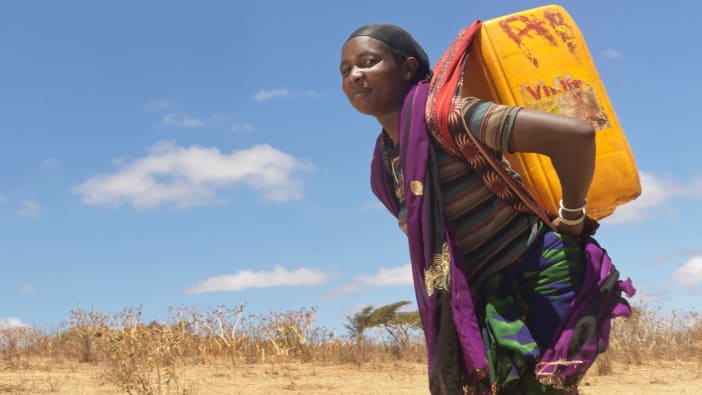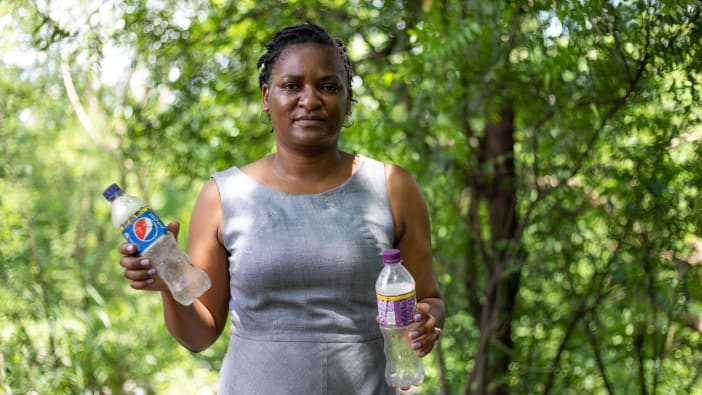Seventy-five per cent of the population in South Sudan are severely food insecure. Ongoing conflict and the climate crisis contribute heavily to the country's growing humanitarian and peacebuilding needs. Since 2019, flooding has increased, and is affecting the country on an unprecedented scale with waters failing to recede in some areas for over three years. Despite these challenges, the UK and other donors have cut humanitarian funding significantly in recent years.
Policy positions
Humanitarian policy recommendations: South Sudan
This briefing paper includes an overview of the humanitarian context in South Sudan and our policy recommendations.
2023 Available in English
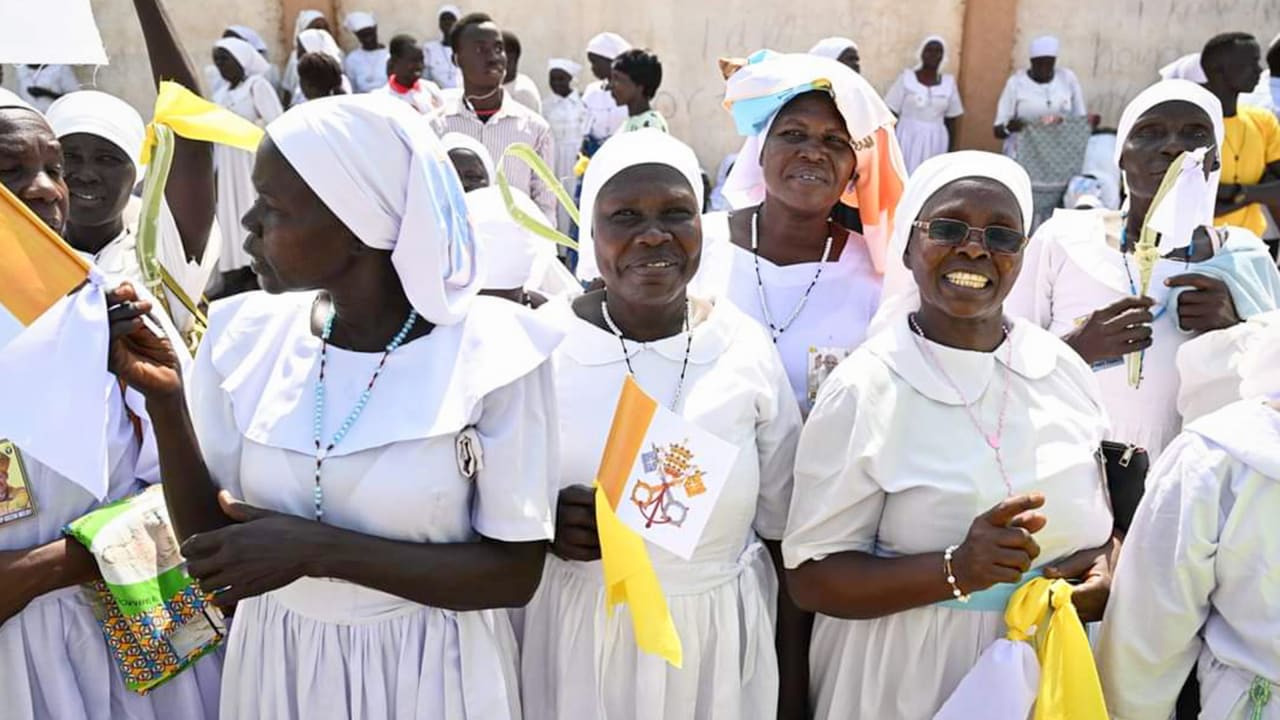
Crowds line the streets of Juba in February 2023 to welcome Pope Francis, Archbishop of Canterbury Justin Welby and Moderator of the Church of Scotland Iain Greenshields. Photo: Rosemary Wilfred/Tearfund
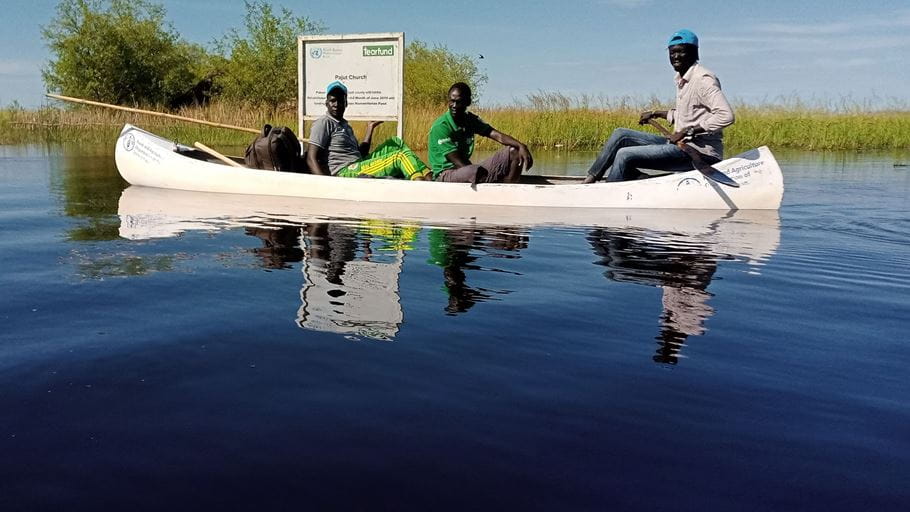
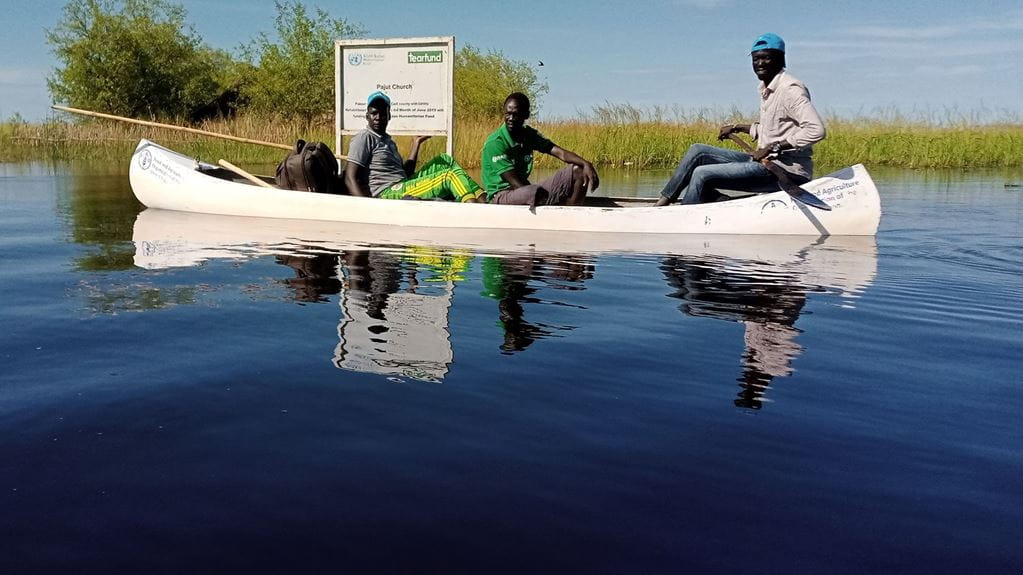
Canoes remain essential for getting around. Tearfund is using them to support remote communities that have been cut off by the flood waters. Photo: John Majok/Tearfund
South Sudan’s government leaders have agreed that the nation's first elections should be held before December 2024. However, in Tearfund’s view, adequate preparations have not been made. The government must ensure there is an end to ongoing violence, finalise the constitution, carry out a census and make robust security arrangements.
Meanwhile, local churches have continued to play a significant role in peacebuilding, advocacy and humanitarian response. And there is evidence that the global church can also aid South Sudan’s journey to peace: The Pope, the Archbishop of Canterbury and the Moderator of the Church of Scotland undertook an ecumenical pilgrimage of peace to South Sudan in February 2023, and since then the Rome peace talks, which had stalled in 2022, have resumed.
This paper proposes some important ways in which the leaders of South Sudan and of the international community can help address the conflict and the climate crisis, and by doing so enable just, inclusive and lasting peace.
Download resource
Similarly Tagged Content
Share this resource
If you found this resource useful, please share it with others so they can benefit too.

Get our email updates
Be the first to hear about our latest learning and resources
Sign up now - Get our email updates



